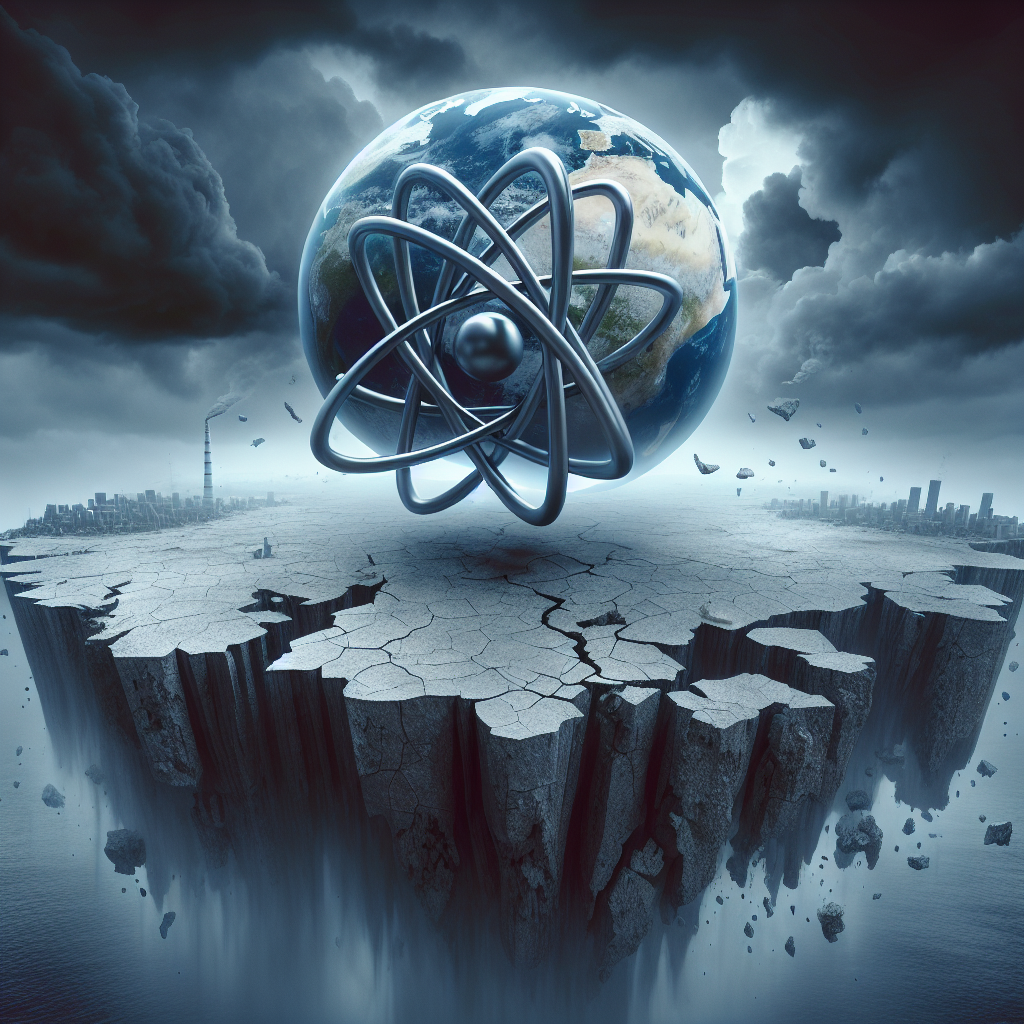The article discusses the alarming resurgence of nuclear threats in contemporary geopolitics, drawing parallels to the Cold War era, when the potential for nuclear annihilation loomed large over global society. Following the dissolution of the Soviet Union, the immediate danger of a nuclear confrontation seemed to fade, allowing the public to relax and momentarily forget about the destructive capabilities of nuclear arsenals. However, the author warns that the specter of a possible nuclear first strike, particularly in conflict-ridden areas such as Ukraine and Russia, threatens to return. In this updated piece, there is an urgent emphasis on the growing tensions among regional nuclear powers, highlighting their readiness to engage in armed conflict while the devastating implications of environmental crises continue to unfold.
The article paints a dire picture of the consequences of a limited nuclear exchange, especially in the context of incapacitating major powers like Russia or China. The author poses a hypothetical scenario that involves launching enough warheads to effectively neutralize a nation’s retaliatory capacity, which not only could lead to immediate destruction but also set off a chain reaction of global catastrophe. The resulting fallout, both literal and figurative, would likely spell the end of human civilization. This notion underscores an alarming arrogance present among those who strategize military options, oblivious to the vast body of research indicating that even minor nuclear exchanges would result in catastrophic human and environmental losses, effectively rendering the world inhospitable for future generations.
The concept of Mutually Assured Destruction (MAD) serves as a grim backdrop to the discussion, illustrating how generations have lived under the shadow of potential global devastation. The author argues that the recurrence of preemptive strike strategies and subversive political maneuvers—typified by recent geopolitical tensions—isn’t merely a matter of military might but a reflection of deeply flawed decision-making processes. The blurring lines between policy and actual human survival invoke a critical question: will future generations inherit a livable world, or is humanity at risk of annihilating itself in an unconscionably reckless pursuit of power and dominance?
Furthermore, the article probes the motivations behind this fixation on nuclear warfare, suggesting a mix of desperation and hubris among Western elites. The potential decline of Western economic supremacy amidst a shifting global landscape is presented as a catalyst for these rulers’ drastic considerations. Alternatively, the notion that such violent strategies may be aimed at controlling population levels is introduced. Regardless of the underlying intentions, the author asserts there remains an unmistakable consequence—a harrowing and irreversible decline of both humanity and the planet’s biosphere.
As the article progresses, it emphasizes the stark reality that even those elite individuals who might survive such a catastrophe—taking refuge in underground bunkers—would still be subject to the lingering repercussions of widespread nuclear disaster. With nuclear power plants facing inevitable failures and the environment becoming increasingly uninhabitable, the fallout would leave life as we know it irreparably altered for untold generations. The dire implications of a nuclear conflict extend beyond immediate loss of life and infrastructure, suggesting a legacy of suffering that extends into the distant future.
Ultimately, the author’s fervent message resonates with urgency, imploring readers to acknowledge the severe repercussions of nuclear engagement and reconsider the moral obligations of ruling powers. The impending threat demands collective awareness and action to avert such catastrophic outcomes. In conclusion, while strategies of aggression may seem viable to some power brokers, the conversation must pivot to ensuring the survival of humanity and the world at large, lest we find ourselves teetering on the brink of annihilation, leaving behind a toxic legacy for future generations.

